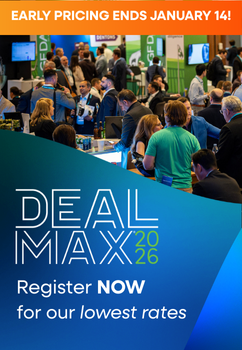
Hear how three local companies pivoted during COVID-19 to not only survive but thrive.
Rick Krska knows from pivoting. The founder and chief executive servant of LaserCycle built the company as the country was exiting the Cold War and his job in the nuclear industry was downsizing. He pivoted again a few years ago to start and then spin off Ink Cycle. Now, thanks to the COVID-19 crisis, he is leading the company through yet another adjustment.
Krska, along with fellow entrepreneurs and pivoters, Matt Baysinger, co-founder and CEO of Swell Spark, and Randy Edge, CEO of InStore Design Display, were the panelists for the July 17th ACG KC virtual breakfast meeting, “Kansas City Strong: How Local Entrepreneurs Have Pivoted to Survive & Thrive.” The discussion was moderated by Scott Hall, senior vice president of civic and community initiatives at the Kansas City Chamber.
Krska said that in March the LaserCycle team gathered to answer the question at the heart of all of its operations.
“How can we serve someone? How can we take our God-given talents and position and help,” he said. “Where can we make a difference?”
Similar questions were being asked by Baysinger and Edge and their teams. While the answers were different depending on circumstances, the companies have learned similar lessons.
At LaserCycle, the pivot meant adding product. Since its business is already about filling objects with liquid, it made sense to try filling objects with a liquid that was in short supply – hand sanitizer.
Krska’s team found a source made of plant-derived materials, started bottling the much-needed product, and used its existing distribution channels to get it where it needed to be.
Meanwhile, across the metro, Edge and his team were quickly slowed when businesses across the country shut down in mid-March. New product launches were slowed if not cancelled, and Edge was looking for a way to avoid laying off employees.
The InStore team realized that the plastic fabrication it usually does for retail design could be used for PPE—specifically face shields. In the span of just a few days designers churned out drawings, met with officials at the University of Kansas Hospital for their input, made revisions and delivered a prototype. The company has since added hanging plastic barriers and shields and is looking at adding products that schools may need in the fall.
Both LaserCycle and InStore have been able to pivot without layoffs. But Swell Spark’s standing as a retail establishment presented very different challenges. For starters, Baysinger had to shut the doors on his locations of escape rooms (Break Out KC) and axe-throwing locations (Blade & Timber) when stay-at-home orders blanketed the country. Then he had to lay off most of his team. It was a gut-wrenching move but the only way to keep the company afloat in the long run.
To pivot and stay in business, Baysinger and Swell Spark have made multiple moves. First, he partnered with The Reiger to act as a distribution site when the bar/restaurant started making its own hand sanitizer. Then came the breakout room app to replace the in-person experience of Break Out KC experience. Finally, his team created at-home mini golf kits to go with their soon-to-open Sinker’s Lounge.
All three entrepreneurs said the last few months have been tremendously challenging, but they have also seen their teams comes together, be enthused about their work and committed to them and their companies. Everyone’s been on a fast track for making changes, coming up with and executing new ideas and keep all these companies going.
Edge’s team has had to establish relationships with different customers to sell the PPE and workplace items. Used to a long sales cycle, they’ve had to adjust to getting customers in the door quickly.
“It was about finding ways to solve problems,” Edge said.
Krska’s company, too, is used to a much longer new product cycle.
“Developing a product usually takes us three to nine months,” Krska said.
What does the future hold? For Baysinger, as things have started re-opening he’s been hiring again and working on re-building his team and culture.
“Our company culture has always been good,” he said. “We are communicating, rebuilding a sense of trust.”
Edge and his employees had never worked from home, but that experience has taught them that it can work and that some of the tools they’ve use to make it efficient can also be used in the office.
“I’ve worked harder in the last three months than ever before, but it’s been fun,” Edge said. “Our team rose to the occasion and I’m proud of what we did.”

Register by January 14 to lock in the lowest rate and join 3,200+ dealmakers in Las Vegas on April 27-29, 2026.
